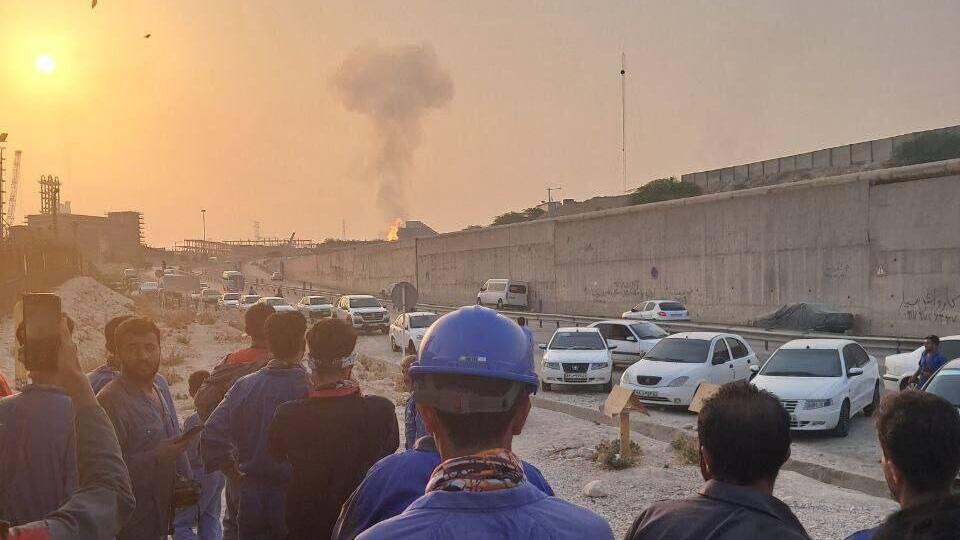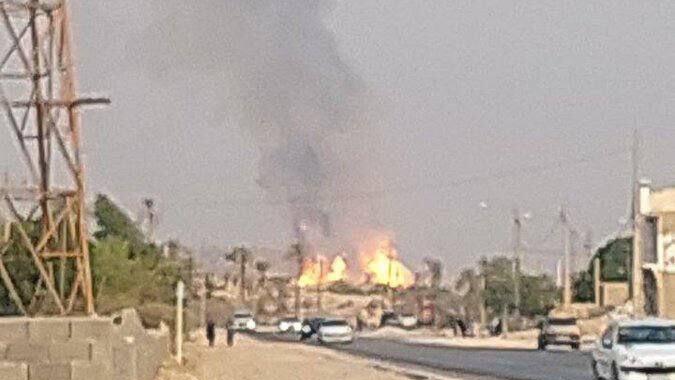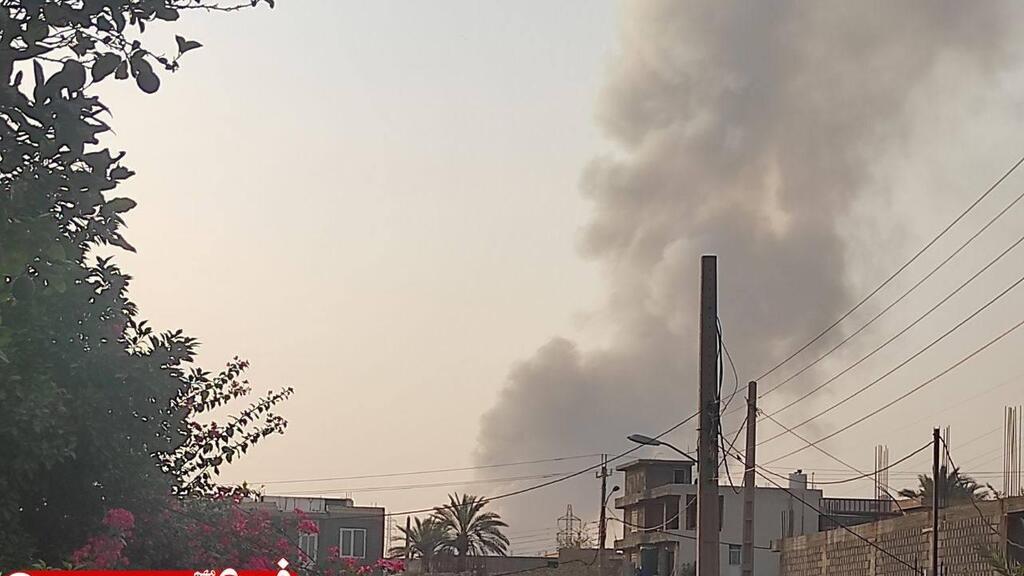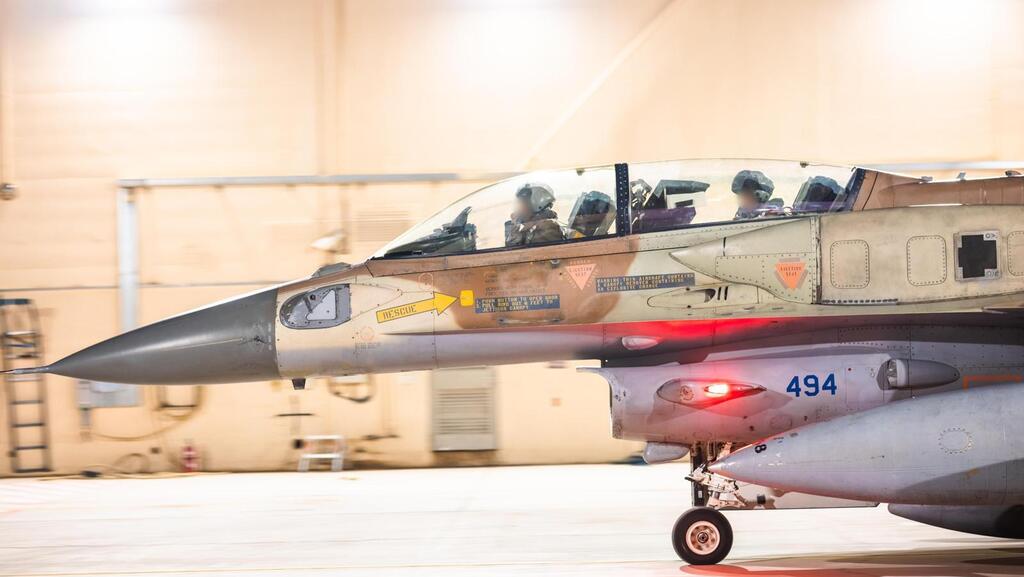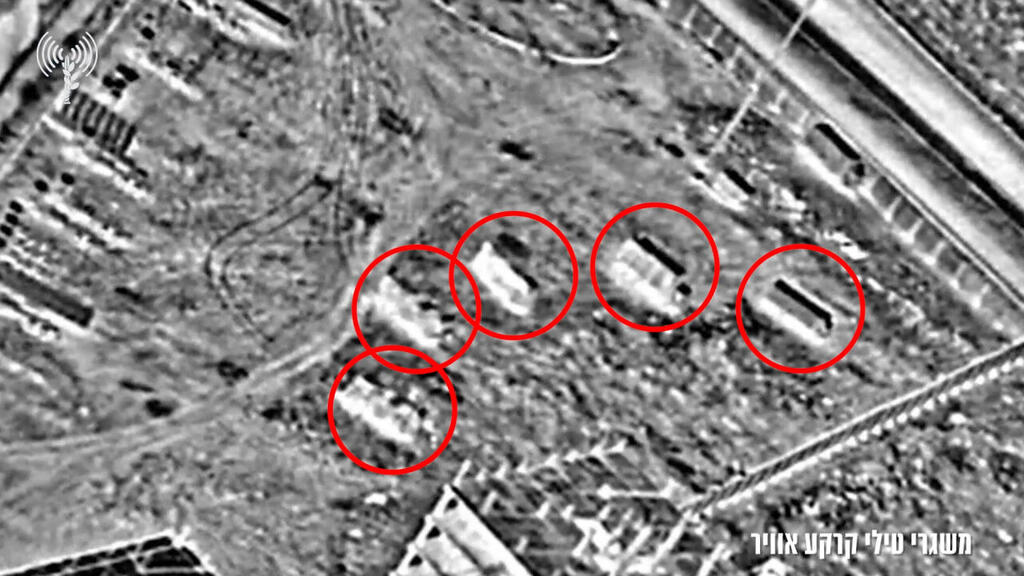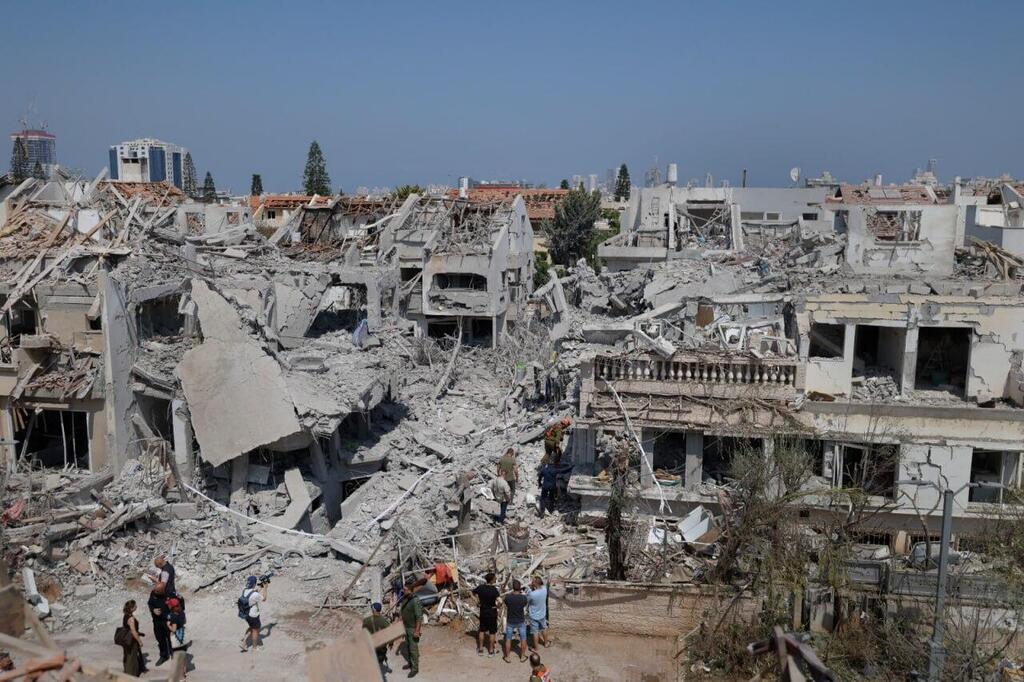Iran accused Israel on Saturday of expanding the scope of its military campaign, with state-affiliated media reporting airstrikes on critical energy infrastructure, including oil refineries and gas fields, for the first time since hostilities escalated.
According to Fars News, a media outlet linked to the Islamic Revolutionary Guard Corps (IRGC), Israeli jets targeted the South Pars gas field and the Asaluyeh oil refinery in Bushehr province, along Iran’s Persian Gulf coast. Fires reportedly broke out at the gas field, and emergency crews were dispatched to the site. A separate explosion was reported at the port of Kangan, also in Bushehr.
Fire breaks out at the South Pars gas field in Iran's in Bushehr province
Meanwhile, the Tasnim news agency reported that three IRGC members were killed in a separate Israeli strike in western Iran, about 300 kilometers from Tehran.
In another report, ISNA news agency said at least 30 Iranian soldiers were killed in East Azerbaijan province, near the Armenian border, since Israel began its offensive early Saturday. The Iranian Red Crescent confirmed the death of one of its personnel and said 55 others were wounded in the attacks.
Israeli officials claimed Iran deliberately targeted civilian areas in its latest ballistic missile salvo, possibly on orders from Supreme Leader Ayatollah Ali Khamenei. The officials warned that any escalation aimed at civilians would be met with a forceful response. “Our objective is not to topple the regime,” one official said, “but that could change quickly.”
Tensions spilled into diplomacy as Iran announced it was canceling scheduled nuclear talks with the United States in Oman. Still, a U.S. official told AFP that Washington “hopes discussions can continue.”
Iranian President Masoud Pezeshkian vowed continued military confrontation with Israel, accusing the U.S. of bad faith in pursuing negotiations while backing Israeli strikes. “The coordination between Israel and the United States alongside talks is evidence of Washington’s lack of sincerity,” he said.
In a televised statement, Prime Minister Benjamin Netanyahu warned, “You will soon see Israeli Air Force planes over Tehran,” adding that Israel had struck key elements of Iran’s nuclear infrastructure. “We severely damaged Iran’s main enrichment facility, hit a vital conversion site and eliminated leading nuclear scientists,” Netanyahu said. “This may set back their nuclear program by years.”
Netanyahu added that the campaign also aims to cripple Iran’s capacity to produce ballistic missiles. “We were at the final hour. Iran was racing to develop atomic bombs. Our strikes were necessary to stop that, and we are not done,” he said. “The road to Tehran has been paved, and what they’ve felt so far is just the beginning. We are in a fateful battle for our existence—and we will fight until we win.”
Elsewhere, a red alert siren was activated in Nir Oz, a kibbutz near the Gaza border. The IDF later reported that two rocket launches were detected coming from the Gaza Strip. Both projectiles crashed in unpopulated areas.
Earlier, a senior Israeli intelligence official told Fox News Iran is currently believed to possess around 2,000 ballistic missiles, and was projected to build an arsenal of 8,000 within two years—one of the key factors behind Israel’s decision to launch a preemptive strike on Iranian territory.
“We cannot end this operation knowing that we will be in the same spot two years from now,” the official said. “Everything is going as planned. Actually, better than planned.” The official added: “We have lots of surprises. Not just the ones we already did. We have more surprises coming up.”
8 View gallery
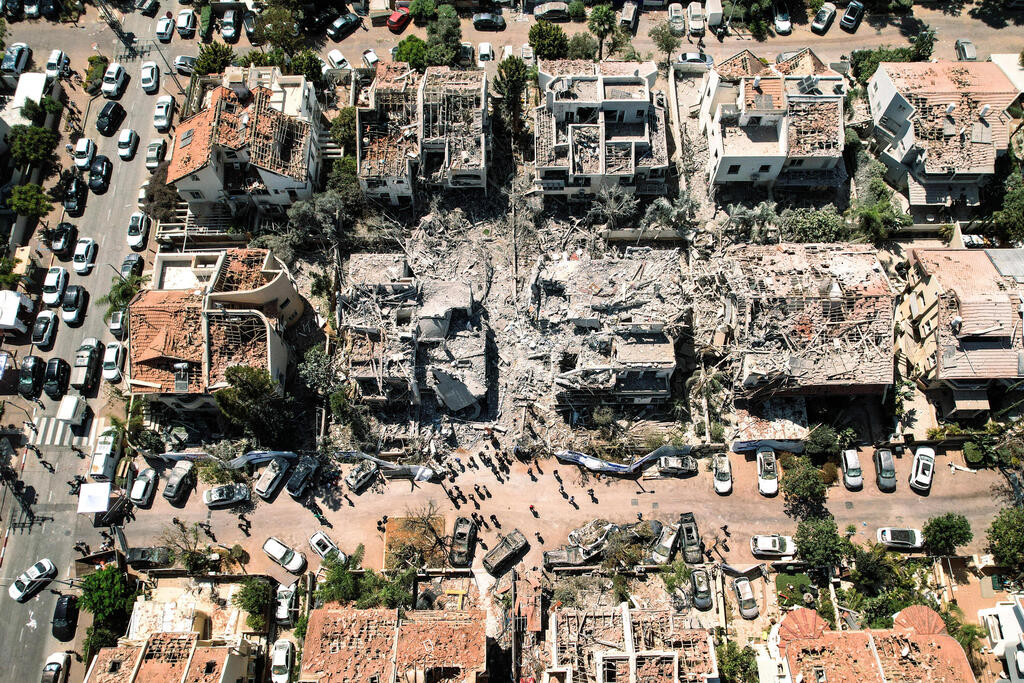

The impact site of an Iranian ballistic missile in Rishon Lezion, central Israel
(Photo: REUTERS/Ammar Awad)
While the situation has remained relatively quiet in recent hours—likely due to holiday observances in Iran—the IDF on Saturday warned that more missile salvos could resume by evening.
As the war with Iran escalates, the Shin Bet domestic security service has significantly increased protection around senior political, military and intelligence officials, fearing assassination or abduction attempts by Iran or its regional proxies. The stepped-up security follows long-standing contingency plans for full-scale conflict, which include undisclosed protocols for shielding high-ranking figures.
Security measures have also been expanded for IDF generals, particularly after Israel’s strike that killed members of Iran’s general staff and top scientists—actions that have prompted Tehran to vow retaliation. Current war cabinet and military general staff meetings are being held under heightened security restrictions.
The security precautions are based on intelligence gathered in recent years indicating Iranian efforts to recruit agents inside and outside of Israel. Those targeted for surveillance included Defense Minister Israel Katz, former prime minister Naftali Bennett, senior IDF commanders including an air squadron chief and scientists with access to classified projects.
The Security Cabinet is expected to convene in a secure underground bunker at 10 p.m.
8 View gallery
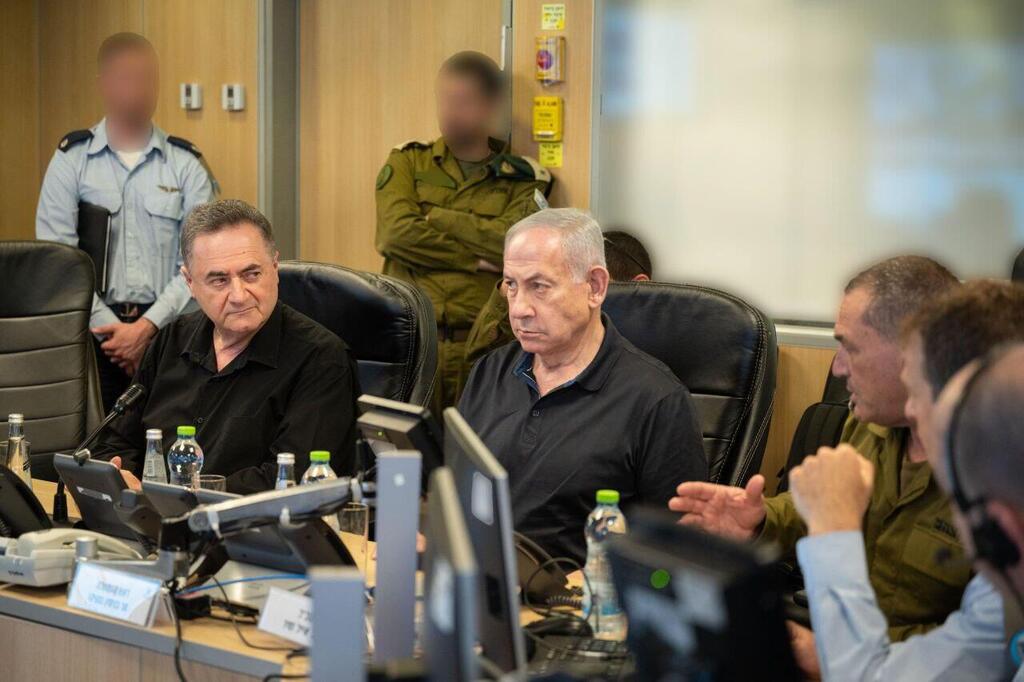

Defense Minister Israel Katz and Prime Minister Benjamin Netanyahu in the underground command bunker
(Photo: Shira Keinan/Defense Ministry)
Meanwhile, the Wall Street Journal reported that U.S. forces assisted Israel “by air, land and sea” in intercepting the wave of Iranian missiles fired in retaliation for the Israeli strikes. U.S. officials told the newspaper that before Iran’s response began, fighter jets, Navy destroyers and ground-based air defense systems had been pre-positioned in the region to help repel any attack. The Pentagon has not yet confirmed how many missiles were intercepted by U.S. forces.
Earlier, the IDF said that its planes were operating freely over Tehran after Israel's opening strikes crippled Iranian air defenses.
Spokesperson Brig. Gen. Effie Defrin said in a statement that "the path to Tehran has been paved. We attacked more than 40 targets across Tehran alongside command infrastructure. Dozens of aircraft are operating freely over Tehran thanks to our opening strikes," he said.
"This is the deepest distance we have operated in Iran so far. We have created freedom of aerial operations all the way to Tehran, aerial freedom that will allow us to operate and eliminate threats."
The military said that over 70 aircraft participated in dismantling Iranian air defenses, adding that the ability to reach Tehran had both strategic and operational significance, rather than attacking targets from a great distance. "We will reach any place necessary to protect the citizens of Israel. Tehran is no longer immune."
Following successful airstrikes deep inside Iran, the IDF said Saturday morning it is executing a long-planned operation aimed at dismantling Tehran's military and nuclear capabilities. “We are moving forward according to a plan that has been prepared for months,” Defrin said. “We’re dismantling threat after threat, step by step. We’ve applied lessons from ground combat in Gaza and coordination with Northern Command to operate effectively even in distant Iran, just as we did over Gaza and Lebanon.”
The military emphasized that while the Air Force alone cannot neutralize all components of Iran’s dispersed nuclear infrastructure, it is targeting missile production, key national infrastructure, regime leadership and nuclear facilities. “This combination will delay the nuclear program for years,” the IDF said.
Israel launched a series of retaliatory airstrikes after Iran fired over 100 ballistic missiles at central Israel late Friday night and into the early morning hours, killing at least three people and wounding dozens more.
Among those killed was 73-year-old Israel Aloni, who died early Saturday after a missile struck his residential street in Rishon Lezion. Etti Cohen Angel, a resident of Ramat Gan, was also killed when a missile exploded in the city late Friday night, the Ramat Gan municipality confirmed.
Footage of Israeli Air Force fighter jets striking Iranian air defense systems
(Video: IDF)
Following a situational assessment, the Home Front Command announced Saturday that there is no longer a need for residents across the country to remain near protected spaces.
The IDF said the opening salvo of Operation Rising Lion struck dozens of targets across Iran. Nine senior Iranian nuclear scientists were killed in the strikes, which the IDF described as a “significant blow” to Iran’s nuclear weapons development.
Get the Ynetnews app on your smartphone: Google Play: https://bit.ly/4eJ37pE | Apple App Store: https://bit.ly/3ZL7iNv
In a separate strike, Iranian military intelligence chief Gholam Reza Mehrabi and deputy operations chief Mahdi Rabbani were also killed, according to Iranian state media.
According to the New York Times, Iran had originally planned to launch a barrage of 1,000 ballistic missiles at Israel, but Israeli strikes on missile storage and launch sites severely hampered Tehran's ability to mobilize. Iranian officials ultimately managed to fire about 100 missiles. Internal communications cited in the report show growing frustration within the Iranian leadership over failed aerial defenses and concerns about the regime’s ability to withstand a prolonged war.
During an emergency national security meeting in Tehran, one senior official warned that Israeli strikes on water or energy infrastructure could provoke public unrest.
Katz warned that further attacks on Israeli civilians would result in severe consequences. “The Iranian dictator is holding his people hostage to a reality they do not want,” Katz said. “They will pay heavily for the criminal attack on Israeli civilians.”
Iranian media reported that Tehran has warned the United States, United Kingdom and France that any intervention would prompt attacks on their regional bases and naval forces. The Fars news agency quoted Iranian military officials vowing a “decisive and extensive” response to any future assaults.
In a situation assessment held on Saturday, IDF Chief of Staff Lt. Gen. Eyal Zamir and Air Force Commander Maj. Gen. Tomer Bar said the “path to Iran has been paved,” with air operations over Tehran ready to continue.
First published: 12:18, 06.14.25





